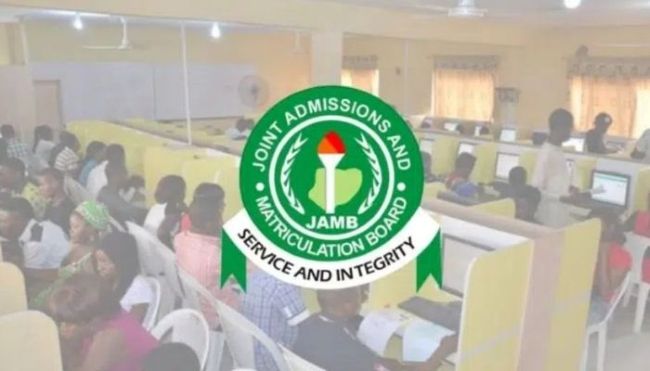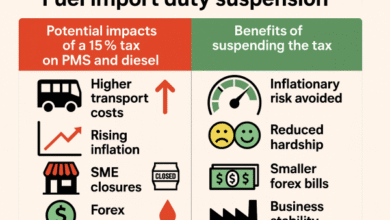JAMB Announces Nationwide Mop-Up UTME Exam for Absentees
…says UTME is a placement test, not an intelligence measure

In a move seen as both remedial and reconciliatory, the Joint Admissions and Matriculation Board (JAMB) has announced plans to conduct an additional mop-up examination for candidates who missed the 2025 Unified Tertiary Matriculation Examination (UTME), estimated to be about 5.6% of total applicants.
The disclosure was made by JAMB Registrar, Prof. Is-haq Oloyede, during a high-level stakeholders’ meeting held Wednesday in Abuja to review challenges experienced during the 2025 UTME cycle.
This development marks an unprecedented shift in JAMB’s usual operations, as the Board typically holds only one mop-up examination annually for candidates affected by biometric failures or technical issues. However, this year’s initiative will include all absentees — regardless of the reasons for their non-participation — in what Prof. Oloyede termed a “fresh mop-up.”
“Even those who missed the earlier examination due to absence, we will extend this opportunity to them,” Oloyede explained. “We just don’t allow abuse of that. But we will allow all the candidates who missed the main examination for any reason to take part in this mop-up.”
Deeper Issues Beneath the Surface
This year’s UTME was not without its share of glitches — a reality that prompted widespread criticism and conspiracy theories, including allegations of administrative incompetence and ethnic bias. But Prof. Oloyede pushed back strongly against such narratives, framing them as misinformed and divisive.
“No conspiracy theory is relevant to this case. Something happened, like people who have been doing something well for years and something just went wrong,” he said. “That I should now throw them under the bus? No.”
Oloyede’s defense underscores a critical theme in Nigeria’s education sector — the fragile balance between transparency, operational efficiency, and public trust. While admitting responsibility for the glitches, he made it clear that accountability should not equate to scapegoating in the face of systemic disruptions.
UTME: More Than Just a Score
A significant part of the misunderstanding, according to the Registrar, lies in the public’s perception of what the UTME actually measures. Contrary to popular belief, Oloyede clarified that the examination is a placement test — not a comprehensive academic or intelligence assessment.
“It is to rank candidates for limited spaces in our tertiary institutions, not to measure intelligence or the totality of academic potential,” he emphasized.
This distinction is critical in light of growing pressure on candidates to ace the UTME as a singular path to higher education, when in reality, admissions into Nigerian universities and other tertiary institutions are determined by a cocktail of performance metrics — including post-UTME scores and internal institutional assessments.
Analysis: A Symptom of Deeper Structural Gaps
JAMB’s decision to accommodate absent candidates, while commendable on the surface, signals deeper structural issues within the examination system. The logistical demands of conducting a nationwide test involving millions of candidates are enormous, and each year’s cycle exposes lingering weaknesses in infrastructure, coordination, and public communication.
Furthermore, the misinformation and ethnic profiling that trailed the 2025 UTME results reveal a broader societal challenge — how national institutions struggle to insulate themselves from politicization and conspiracy-driven narratives. In many quarters, examination glitches quickly devolve into ethnic or regional blame games, exacerbating social tensions and undermining collective trust.
Oloyede’s call for restraint and unity in this context is not merely defensive; it’s a strategic appeal for a more informed public discourse on educational policy.
Moving Forward
As the mop-up exam is being planned, JAMB is expected to announce new dates and modalities for affected candidates in the coming days. In the meantime, the Registrar has commended the resilience of many candidates who braved technical failures and delays to complete their exams, calling them “heroes of perseverance.”
For parents, educators, and policymakers, the latest episode offers key takeaways: the need for improved technological infrastructure, stakeholder education, and a depoliticized understanding of educational assessments.
For candidates who missed the 2025 UTME, however, there is now a second chance — one that JAMB hopes will be both equitable and inclusive, even as it seeks to regain public confidence in its mandate as Nigeria’s gateway to tertiary education.











